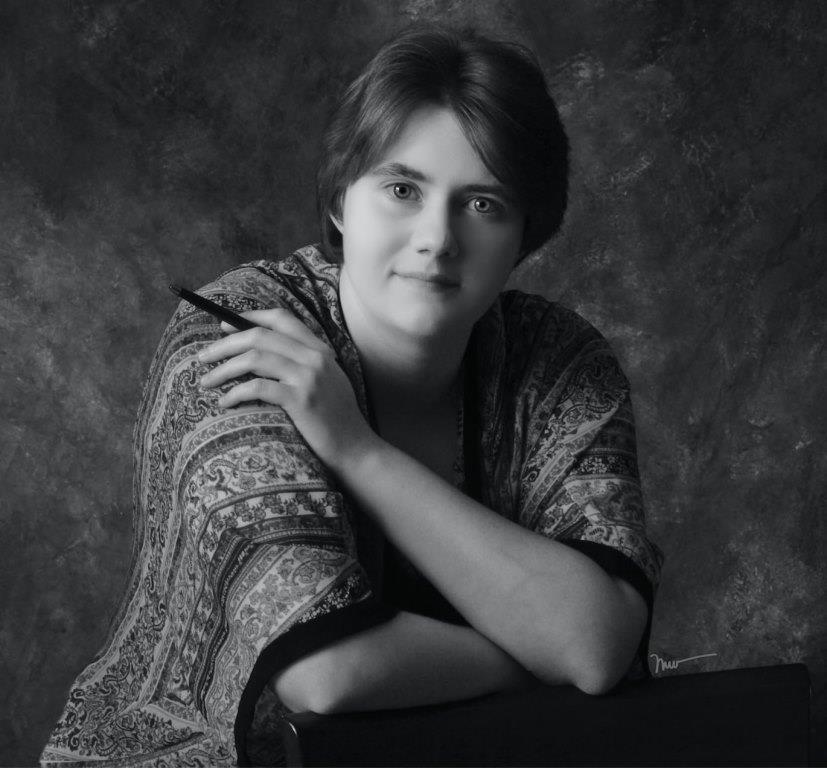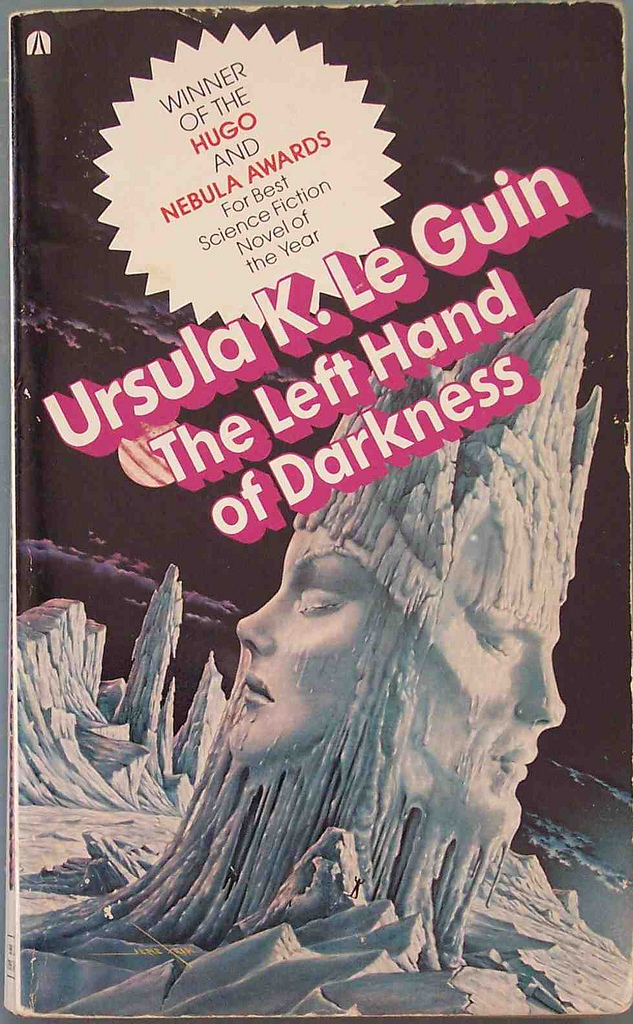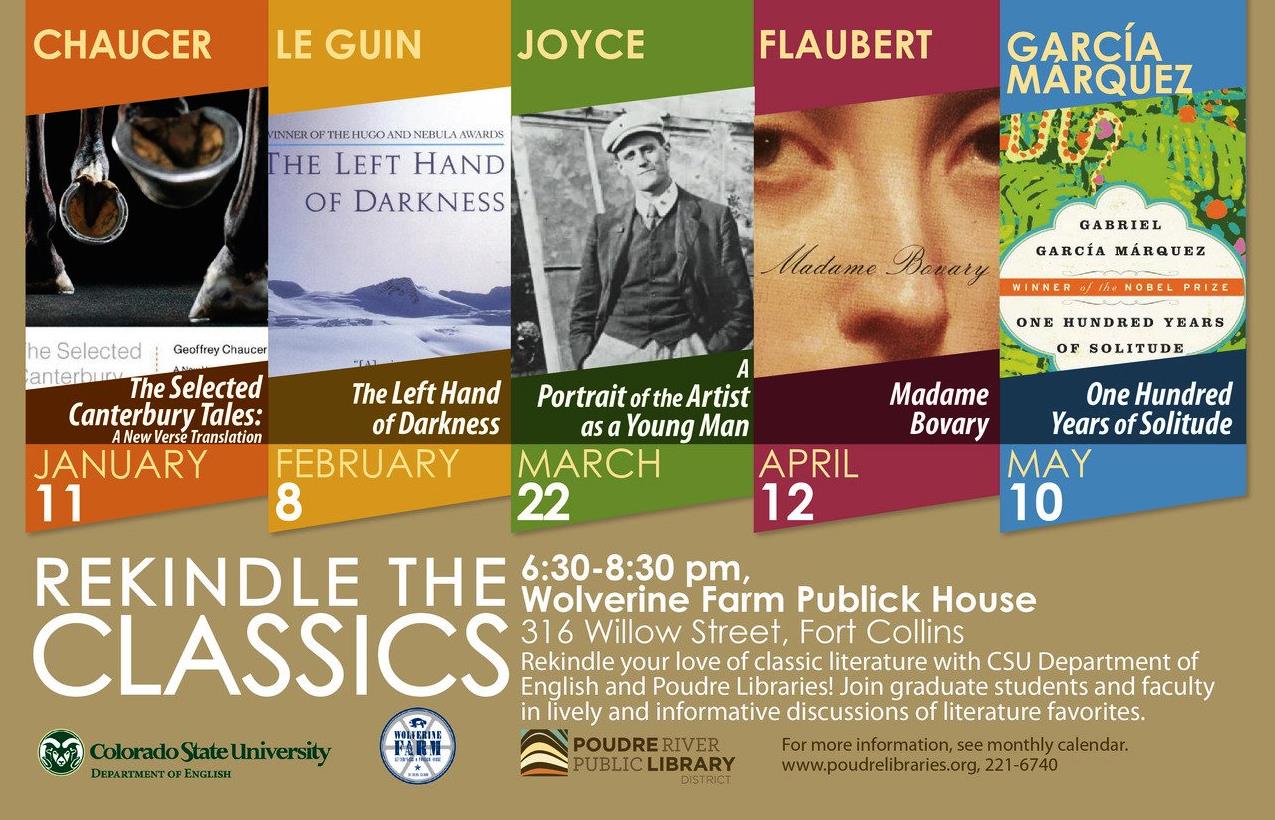Kelly Weber is a first-year graduate student in the MFA Poetry program and graduate teaching assistant (GTA) for CO150. She’s been featured in our Humans of Eddy series and recently facilitated a Rekindle the Classics discussion about Ursula K. Le Guin’s The Left Hand of Darkness. She was kind enough to report back to us about how it went.

~from Kelly Weber
“While reading, like writing, may feel like a solitary endeavor, it’s perhaps best shared as part of a community.”
You know that feeling when you just need to talk out a book with friends?
On Wednesday, February 8, I and faculty from CSU gathered with members of the Fort Collins community for a conversation about Ursula K. Le Guin’s The Left Hand of Darkness as part of the Rekindle the Classics series. At Wolverine Farm Letterpress & Publick House, we shoved a couple tables together and crowded glasses, books, and knees around it to start the conversation. Several of us sneaked in a few gibes about one another’s book covers–the literary “Who wore it best?” of icy vistas plastered across trade paperbacks. (Don’t lie, English majors live for this stuff.) After a few minutes of settling and a proper introduction from Lynn Shutters, we jumped in.

Feminism. Ambisexuality. Ice. Anthropology. Ethnography. Science fiction. Loyalty. Nationalism. Love. War. Every topic was fair game in our conversation, and as we talked, I slowly found that others had crossed the same imaginary ice I did. People thumbed through pages more and more frequently to read aloud passages. Someone in the group would offer a question and another a theory with parts of the text, and then yet another would jump in with an alternative reading of the same scene. We ranted about characters we didn’t like, raved on the ones we did. Is the world of The Left Hand of Darkness the main character, or is it a tool only developed as much as it needs to be?
By break time, people were laughing and circling into little knots and groups as they got up to stretch or order refills. When we found our seats again, we reached a consensus: each of us needed to finally process a major character’s death. (No spoilers.) How did we interpret that final scene? How had rereading opened new perspectives on it for us? I felt–years after flipping through those final pages on a dark, cold winter night–that I could finally reach some closure. Toward the end of the conversation, we veered away from Left Hand to talk more generally about “genre” literature’s representation and the underrepresented benefits of good literary science fiction and fantasy. The evening’s talk ended with excited chitchat about stories even as people were walking out the door.

The best part of discussing books with a good group of people (and this is something we talked about during our conversation) is a) being able to talk about lit in a way that’s fruitful and b) finally sharing what’s been on your mind about what you’ve read: the challenges, the heartaches, the head-scratchers. While reading, like writing, may feel like a solitary endeavor, it’s perhaps best shared as part of a community. A passionate conversation about a novel, or poetry, or memoir, or what-have-you, becomes of course precisely what the best literature stands for: a passionate conversation about what we think and feel about our everyday lives. To talk about reading is to talk about thinking and dreaming, and that’s kind of an amazing thing to bring into a communal space.
I’ve already got my calendar marked for next month’s Rekindle the Classics. I look forward to paging through a classic again with a great group of people–and I hope to keep seeing new faces.
